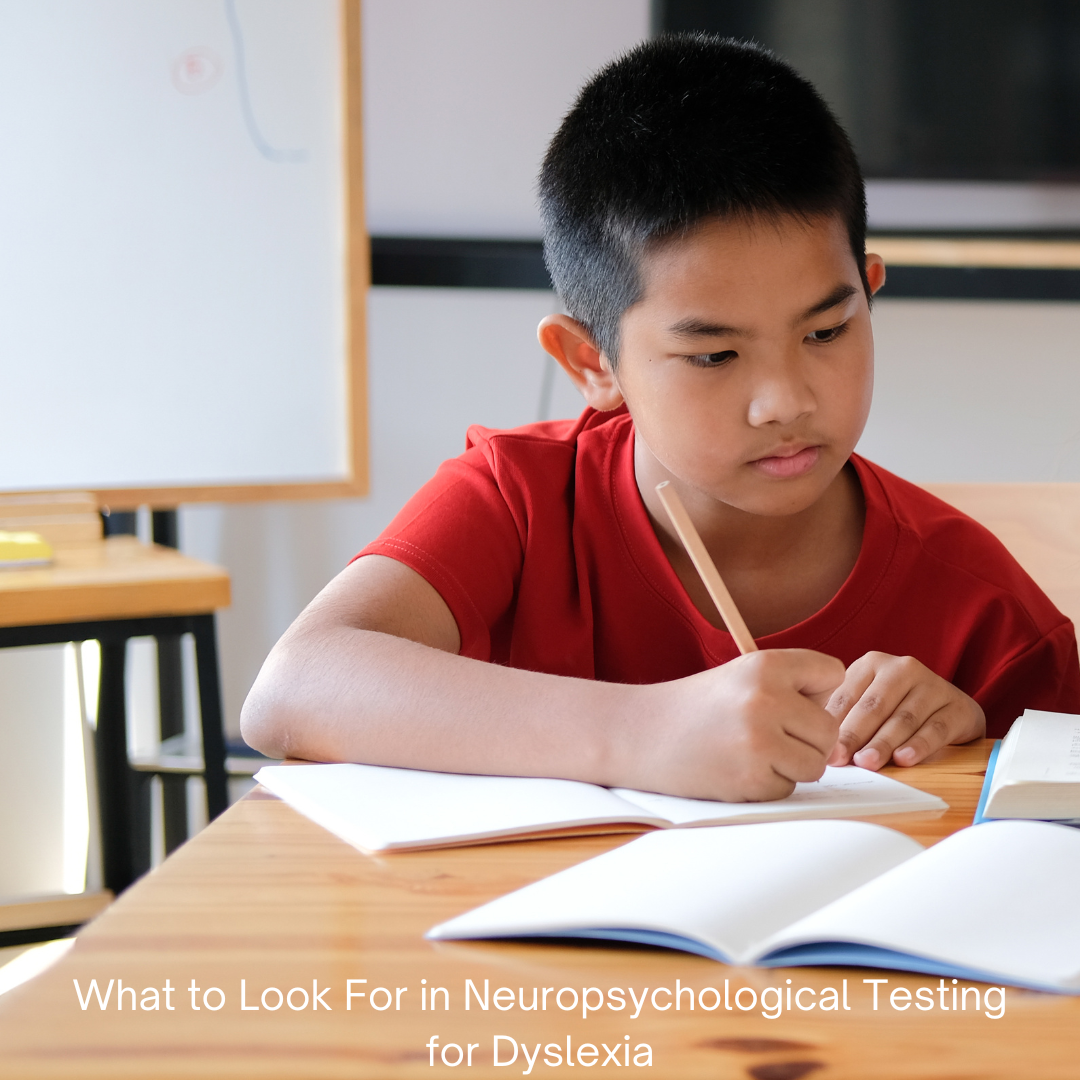What to Look For in Neuropsychological Testing for Dyslexia
What is Dyslexia?
Dyslexia is a type of language-related impairment that affects reading and writing. The formal diagnostic term used by most clinical psychologists and neuropsychologists is specific learning disorder with impairment in reading, and dyslexia is considered “an alternative term used to refer to a pattern of learning difficulties characterized by problems with accurate or fluent word recognition, poor decoding, and poor spelling (APA DSM-5, 2013, p.67).”
There are a variety of reasons why someone may have difficulty learning to read and not all reading-related difficulties are considered to be dyslexia. A comprehensive diagnostic evaluation that includes neuropsychological testing can often help identify the underlying factors contributing to reading difficulties for children and adults.
Neuropsychological Testing for Dyslexia: What to Look For
First, it is important to note that a clinical diagnosis of dyslexia, or neuropsychological testing, is not required to receive reading intervention or special education services in public schools. If you suspect that your child has a learning disability, you can request a free evaluation through your local public school system. A school-based evaluation is meant to determine whether a student meets eligibility criteria for special education but does not typically provide a medical or clinical diagnosis. Some families may seek neuropsychological testing to get more information about their child’s needs, such as whether their child’s reading difficulties reflect a dyslexia profile or are due to other factors.
Here are some things to look for when considering neuropsychological testing for dyslexia:
An Evaluator with Experience Assessing Dyslexia and Other Learning Difficulties
Finding an evaluator who has expertise in conducting diagnostic evaluations for dyslexia and other learning difficulties is important, as there is not a single test or assessment tool that can accurately identify dyslexia on its own. An experienced evaluator will use multiple assessment methods to carefully examine an individual’s learning profile. This includes an understanding of research on effective reading instruction (i.e., the Science of Reading) and experience diagnosing co-occurring conditions and identifying key factors that contribute to an individual’s reading performance.
A Comprehensive Dyslexia Evaluation
A comprehensive evaluation for dyslexia should include more than just a reading test. It often involves obtaining a detailed developmental and health history, reviewing educational records, and completing standardized assessments of specific skills related to oral language, phonological awareness, rapid naming fluency, word reading, oral reading fluency, reading comprehension, spelling, and written expression. It may also include assessments of cognitive and executive functioning skills, such as attention, working memory, processing speed, and self-regulation. A comprehensive evaluation for reading difficulties, such as neuropsychological testing, is intended to specify the nature of an individual’s challenges with reading and factors contributing to poor reading performance.
An Evaluator Knowledgeable About Educational Recommendations
In addition to offering a comprehensive evaluation assessing the various areas of functioning related to dyslexia, the evaluator should have knowledge of effective educational interventions and accommodations. This requires an understanding of effective reading instruction, classroom environments, and reasonable, effective accommodations appropriate to the individual’s specific environments and needs. The evaluator should also offer guidance to individuals in how to access necessary accommodations in the settings in which they may be legally entitled to receive accommodations.
Knowing what to look for in neuropsychological testing for dyslexia in Madison, WI can help you make an informed decision about how to obtain an evaluation that will meet your or your child’s specific needs. If you are looking for an evaluation related to learning differences, such as dyslexia, complete the Testing & Evaluation request form linked below. I’d be happy to discuss your evaluation needs and whether I might be a good fit for what you’re seeking.
